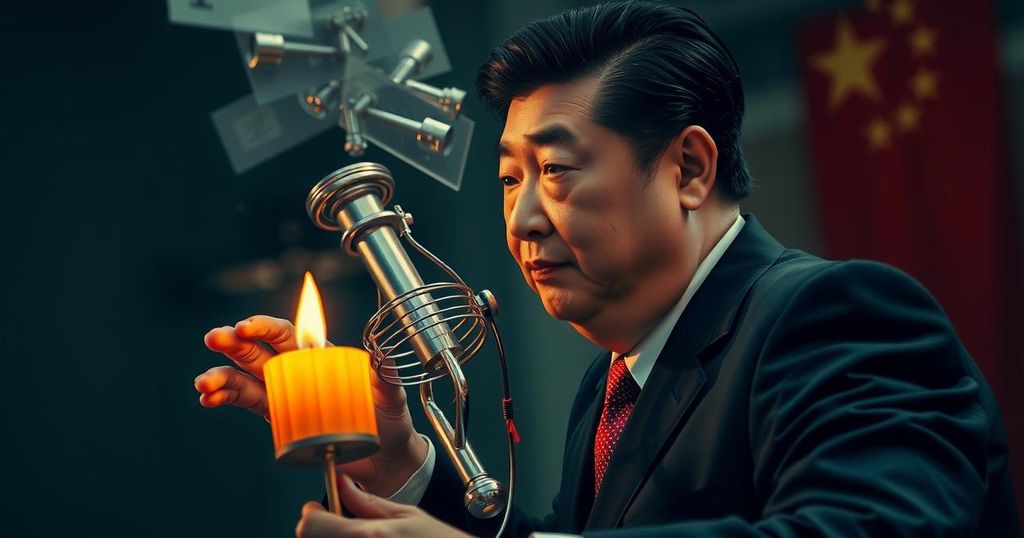The gathering of North Korean troops in Russia raises international concerns about an unstable coalition of autocratic regimes against Western interests. Despite appearing unified, internal divisions complicate their collaboration. China, under Xi Jinping, strives to reshape global power dynamics yet remains constrained by economic dependencies. The potential escalation of tensions due to North Korean involvement could adversely affect China’s stability, showcasing the inherent risks of Xi’s diplomatic strategies.
The recent assembly of North Korean troops in Russia, reportedly to support President Vladimir Putin’s invasion of Ukraine, has reignited concerns in the West regarding an emerging alliance among autocratic regimes aimed at undermining democratic values. While this alignment among Russia, China, Iran, and North Korea depicts a united front against U.S. influence, significant fractures reveal a more complex dynamic that may lead to instability rather than cohesion. The Ukraine war has become a platform showcasing collaboration among these four nations, united by their mutual disdain for the United States and the democratic order. Following Russia’s invasion in 2022, reports emerged of Russia acquiring military resources from Iran, including drones and missiles. The United States has sanctioned Chinese enterprises for their involvement with Russian firms in drone production, confirming suspicions that China has been supplying Russia with essential components for its military operations. Notably, U.S. Defense Secretary Lloyd Austin remarked that the participation of North Korean troops in the conflict would pose escalating challenges for both Europe and Asia. However, latent divisions among these authoritarian states complicate their supposed alliance. Russia’s aggressive militaristic expansionism contrasts sharply with the more precarious situations faced by North Korea and Iran. These nations, largely isolated from Western support and economically weakened, find potential gain in aligning with Russia. Conversely, China faces a distinctly multifaceted dilemma; its ambition to reshape the global order is jeopardized by substantial economic dependencies on the existing international system, predominantly governed by U.S. interests. Thus, Xi Jinping’s leadership has leaned toward cautious maneuvers aimed at maintaining stability while gingerly enhancing China’s global power. Despite U.S. pressures for China to intervene and temper North Korea’s engagement with Russia, Xi’s apparent disinterest in restraining his autocratic partners speaks volumes about his strategic priorities. Following a meeting with President Putin, in which discussions regarding military collaborations remain undisclosed, the presence of North Korean troops in Russia persisted unchallenged. From a broader viewpoint, Xi’s leadership may inadvertently be facilitating the very turmoil that jeopardizes international stability. With ongoing sanctions isolating Russia, Iran, and North Korea, these nations turned to China for economic sustenance; trade between China and Russia surged to an unprecedented $240 billion in the previous year. Additionally, economic ties with Iran and North Korea further demonstrate the deepening financial entanglement between these nations and China, suggesting an indirect endorsement of their activities. While destabilizing actions by such autocracies can seem beneficial to China, potentially draining Western resources, they harbor profound risks for China’s economic well-being. Increased conflict in regions like the Middle East could threaten energy markets critical to China’s economy, and the North Korean troop deployment risks escalating tensions in Ukraine—possibly even prompting South Korea to consider supplying offensive weaponry to Ukraine. This scenario raises apprehensions regarding a consolidated response from U.S. and European leaders, potentially leading to stricter sanctions against China itself. Ultimately, the conundrum shaping China’s foreign policy reflects a desire to destabilize the current order while simultaneously preserving its benefits. Xi’s approach is intended to reduce reliance on U.S. influence and promote self-sufficiency, fostering trade ties with nations in the global South. Nevertheless, this strategy is a long-term vision fraught with immediate risks. Xi’s willingness to entertain a precarious international environment carries the risk of damaging China’s own economic interests, complicating its geopolitical aspirations. In a world teetering on the edge of chaos, one must ponder the ramifications should Xi’s gamble ultimately misfire, raising poignant questions about the efficacy of his alliances with such volatile partners.
The article examines the geopolitical landscape surrounding the interaction between autocratic states, particularly focusing on North Korea’s troop movements into Russia amid the ongoing conflict in Ukraine. It highlights how these nations’ alliances are not as cohesive as they may seem, recognizing the economic dependencies and internal divisions that complicate their shared goals against the backdrop of U.S. dominance. The article also explores China’s strategic positioning as it navigates its aspirations for increased global influence while balancing its economic reliance on international trade structures primarily led by Western economies.
China’s maneuvering within an alliance comprising Russia, Iran, and North Korea reflects a fragile balance of power where burgeoning autocratic cooperation is undergirded by significant geopolitical risks. Xi Jinping’s leadership must reconcile ambitions to reshape international dynamics with the realities of economic interdependence on the existing global order. The outcomes of this strategic gamble remain uncertain, with potential repercussions not only for the involved nations but for global stability and economic systems at large.
Original Source: www.theatlantic.com






